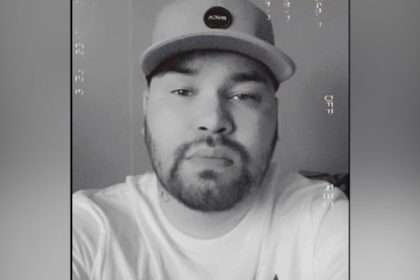A judge has stayed all charges in the Winnipeg sexual assault case against disgraced fashion mogul Peter Nygard, finding his Charter right to a fair trial was breached by police failing to retain records related to allegations stemming from the 1990s.Nygard appeared via video link in a Winnipeg courtroom for the decision Wednesday, where provincial court Judge Mary Kate Harvie said she was satisfied that right was “substantially prejudiced” and would “be further aggravated” if the trial on the matter was allowed to proceed.The complainant alleged Nygard sexually assaulted her at his Winnipeg warehouse in November 1993. He was charged with sexual assault and unlawful confinement.The identity of the complainant, April Telek, was previously protected under a publication ban. That ban was lifted following the judge’s decision Wednesday, which court heard was done at Telek’s request.Telek spoke about the alleged incident with police officers, including North Vancouver RCMP and Winnipeg police, but Harvie said any notes or reports related to those interactions are presumed to have been purged from police systems.WATCH | Peter Nygard’s charges stayed in Winnipeg sexual assault case:Peter Nygard’s charges stayed in Winnipeg sexual assault caseA judge has stayed all charges in the Winnipeg sexual assault case against disgraced fashion mogul Peter Nygard, finding his Charter right to a fair trial was breached by police failing to retain records related to allegations stemming from the 1990s.The investigation was launched by Winnipeg police in 2020.Nygard reacted to the update in his case Wednesday with delight, as his lawyer explained the decision to him over video on a break in court following the judge’s comments.”So then we won? The charges are therefore dropped?” Nygard asked lawyer Gerri Wiebe.”That’s wonderful news,” he said from custody in Ontario, where he’s serving a sentence in another sexual assault case. “Congratulations.”Wiebe filed a motion for a stay of the proceedings in September, arguing her client had been denied the right to a fair trial on the basis that officers who interviewed the woman in 1993 were unable to produce documentation of their exchanges.Peter Nygard’s lawyer alleges police lost evidence, wants Winnipeg sex assault case tossed before trial ‘Sexual predator’ Peter Nygard sentenced to 11 years for 4 counts of sexual assaultWiebe argued testimony from the complainant and police was in no way an adequate substitute for missing documentation. “The complainant here can say anything she wants to about what she did or didn’t tell police … and I have virtually nothing to challenge that with,” the lawyer said in September. ‘Significant changes’ needed: judgeHarvie said it’s becoming more common for courts to hear cases involving historical sexual assault allegations, in part because victims sometimes “require years to process the trauma before they are able to come forward.” But she also said participants in the justice system, including police, need to make adjustments to recognize the challenges historical allegations can pose — including missing evidence and the fading of memories over time — “while at the same time respecting the constitutional rights of the accused and the need for proof of any allegations beyond a reasonable doubt.””It is important that all players within the criminal justice system recognize that it may take multiple meetings, over months or years, for the disclosure process to be completed and for charges to be laid,” Harvie said, calling it “critically important” that police ensure communications with victims aren’t purged from storage without appropriate evaluation.”This may mean significant changes are necessary to the categorization and storage of police reports, notebooks and statements. We live in a day and age where the storage of vast quantities of documents has never been easier. For the sake of victims of sexual violence, and to ensure against wrongful convictions, no other alternative is acceptable.”Prosecutor denies lost evidence prevents fair trial for Peter NygardHarvie also said in her decision that the latest breach of Nygard’s rights was the second in the case, after she determined earlier this year that Manitoba’s former attorney general ordering a review of a decision not to charge Nygard with sexual assault amounted to a serious abuse of process.Montreal charges, Ontario appeal pendingRob Parker, the Saskatchewan-based prosecutor assigned to the case after it was sent out of Manitoba for the review, said he couldn’t say he was surprised by the judge’s decision Wednesday.”This is a complex legal issue, and there were a lot of arguments to be made. Defence counsel represented her client very capably,” he said following Wednesday’s hearing.Rob Parker, a Saskatchewan-based prosecutor assigned to the Nygard case in Manitoba, is shown outside the courthouse in Winnipeg on Wednesday, after a judge stayed all charges against Nygard related to the Winnipeg sexual assault case against him. (Tyson Koschik/CBC)Nygard’s lawyer said Wednesday though the judge’s decision was a difficult one, it was the right one in the case, given the court found her client’s rights were violated twice.”Despite how unpopular a person may be, or despite how difficult the allegations may be, the Charter is in place for a reason,” Wiebe said.“I think that’s the exact role of judges in our democracy is to make those calls that need to be made without fear of reprisal, without fear of personal retribution.”Nygard’s trial on the Winnipeg allegations had been scheduled for December. A Saskatchewan government spokesperson said in an email Wednesday that Saskatchewan Public Prosecutions will now be “reviewing the decision of the trial judge to determine whether an appeal is appropriate. “Former Manitoba justice minister’s decision to order Nygard review was abuse of process: judgeNygard is already serving an 11-year prison sentence after he was found guilty in an Ontario court of four counts of sexual assault for offences from the 1980s to mid-2000s. He is appealing that conviction and sentence. He also faces charges of sexual assault and forcible confinement related to allegations of events that took place from Nov. 1, 1997, to Nov. 15, 1998, in Montreal.Gerri Wiebe, Nygard’s defence lawyer, says she thinks the judge’s decision to stay charges against him was the right one. (Tyson Koschik/CBC)Wiebe said the Montreal matter is expected to have trial dates set in December, while Nygard’s Ontario appeal will be heard in March.U.S. authorities have also sought his extradition on a nine-count indictment filed in New York, alleging he was involved in illegal activity for the purpose of sexually abusing and trafficking women and underage girls.Nygard has denied all the allegations against him.In November 2024, the Supreme Court of Canada announced it would not hear a request by Nygard for a judicial review of the order to extradite him to the U.S. In 2022, then federal justice minister David Lametti ruled that Nygard could be extradited once his legal cases in Canada are settled.Cost of record-keeping improvements ‘small price to pay’While making changes to record-keeping policies to keep older documents for longer could be a “sizeable undertaking,” Brandon Trask, an associate professor in the University of Manitoba’s faculty of law, said he thinks police “would be quite wise” to follow the judge’s suggestions.”Is that going to come with a price tag attached? Absolutely. But, you know, essentially as a society, we end up getting the justice system that we’re prepared to pay for,” Trask said.”The cost associated with improvements to record keeping and record retention is, frankly, a small price to pay to allow for justice to be served in cases where you’ve got historic sexual offences that are alleged.”Trask said while an appeal in the case is possible, he thinks it could be “a bit of an uphill battle” for the Crown if it’s something prosecutors decide to pursue.”If you’ve got a situation where police conduct leads to a scenario in which it’s impossible for somebody to get a fair trial … that becomes one of these clear cases where there’s no alternative for the court, really, but to terminate the proceedings,” he said.”It has nothing to do with who the particular accused is. It has everything to do with, you know, was the accused afforded a right to a fair trial? “And if the answer was no, and there was no way to sort of ensure that you could do that, then really there’s no choice but to have a judicial stay granted, like we saw here.”
Thursday, 9 Oct 2025
Canada – The Illusion
Search
Have an existing account?
Sign In
© 2022 Foxiz News Network. Ruby Design Company. All Rights Reserved.
You May also Like
- More News:
- history
- Standing Bear Network
- John Gonzalez
- ᐊᓂᓈᐯᐃᐧᐣ aninâpêwin — Truth
- Creation
- Beneath the Water
- Olympic gold medal
- Jim Thorpe
- type O blood
- the bringer of life
- Raven
- Wás’agi
- NoiseCat
- 'Sugarcane'
- ᐅᑳᐤ okâw — We remember
- ᑲᓂᐸᐏᐟ ᒪᐢᑿ
- This is what it means to be human.
- Nokoma
- Kanipawit Maskwa
- Native American names











